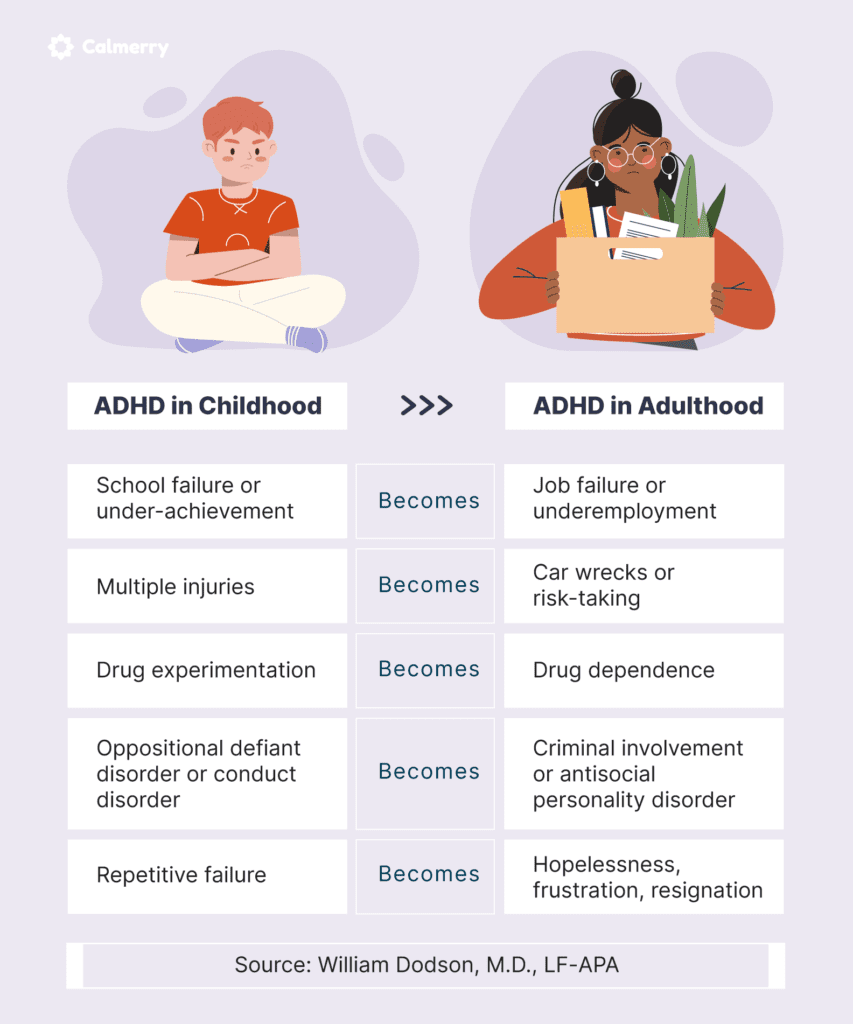ADHD, or Attention Deficit Hyperactivity Disorder, isn’t just a childhood condition; many adults grapple with its effects as they age. But a common question arises: Can ADHD get worse with age? Let us go understanding the Impact of Aging on ADHD Symptoms.
My Personal Experience with Aging and ADHD
Growing up with ADHD was like trying to ride a bike uphill—exhausting and often frustrating. As I transitioned into adulthood, I constantly wondered if my symptoms would mellow out or if they’d intensify as life got busier. I remember my college days, where managing assignments and social life felt like juggling flaming torches. Fast forward to adulthood, and things didn’t exactly calm down—they just transformed.
I noticed that while I had strategies in place to handle my ADHD, the demands of adult life—career pressures, family responsibilities, and financial worries—added layers of complexity that sometimes made my symptoms feel more pronounced. It was as if my brain had become a crowded subway at rush hour, and I was still trying to keep my cool amidst the chaos.
The Reality: Does ADHD Worsen with Age?
So, can ADHD get worse with age? The answer is nuanced. Research suggests that while some adults may experience a reduction in hyperactivity symptoms, others might find that inattention and impulsivity can actually become more pronounced over time. Factors like increased responsibilities, stress, and the onset of co-existing mental health conditions can exacerbate ADHD symptoms.
For example, I’ve encountered friends who were diagnosed with ADHD in childhood but reported feeling increasingly overwhelmed by distractions and forgetfulness as they entered their 30s and 40s. This isn’t just anecdotal; studies indicate that while many children with ADHD see improvements in hyperactivity, challenges with focus and organization can persist or worsen.

What Contributes to Worsening Symptoms?
Several factors might contribute to the perception that ADHD worsens with age:
- Increased Responsibilities:
As adults, we juggle jobs, relationships, and sometimes kids. The demands can amplify feelings of being overwhelmed, causing ADHD symptoms to flare up.
- Co-existing Conditions:
Anxiety and depression are common in adults with ADHD. These can interact with ADHD symptoms, making it feel like everything is spiraling out of control.
- Changes in Brain Chemistry:
As we age, our brain chemistry changes. For some, this can impact attention and impulse control, making symptoms feel more pronounced.
- Lack of Support:
Many adults fall through the cracks when it comes to ADHD support. Unlike kids in school, adults often don’t have readily available resources, making it harder to manage symptoms.
Best Careers for People with ADHD
Finding the right career can make a significant difference for individuals with ADHD. Jobs that allow for creativity, flexibility, and engagement can be particularly beneficial. Here are some career paths that often align well with ADHD traits:
- Creative Fields:
Many people with ADHD thrive in artistic roles such as graphic design, writing, or music. The ability to express oneself creatively can provide an outlet for the often tumultuous thoughts and feelings that come with ADHD.
- Entrepreneurship:
For those who crave independence, starting a business can be a great fit. Entrepreneurs often have to think on their feet and juggle multiple tasks, which can be exciting for individuals with ADHD.
- Healthcare:
Careers in nursing, emergency response, or even therapy can be fulfilling. These roles often involve fast-paced environments and the need for quick decision-making, which can engage the ADHD brain.
- Education and Training:
Teaching or coaching can also be rewarding. The dynamic environment and the need for creativity in lesson planning can provide a stimulating atmosphere.
- Technology and IT:
Roles in tech often require problem-solving and quick thinking, both of which can align well with ADHD traits. Fields like software development or IT support can be fulfilling for those who enjoy puzzles and challenges.
Finding a career that plays to your strengths can make navigating the challenges of ADHD much easier and more enjoyable.
My Strategies for Managing ADHD as I Age
As I’ve navigated adulthood with ADHD, I’ve found that certain strategies help keep my symptoms in check:
- Mindfulness Practices:
Meditation and yoga have become my go-to tools. They help ground me and improve my focus.
- Structured Routines:
Creating a daily routine has been a game changer. It minimizes the chaos and provides a sense of control over my day.
- Seeking Professional Help:
Therapy has been invaluable in learning coping mechanisms tailored to adult life.
- Medication Management:
For those already on medication, regular check-ins with a doctor can help ensure the treatment remains effective as life changes.
The Bottom Line: Facing ADHD with Age
In conclusion, while ADHD can feel more challenging as we age, it’s crucial to remember that it’s manageable. Understanding how ADHD interacts with the demands of adult life is the first step toward finding effective coping strategies. If you or someone you know is struggling with ADHD symptoms, don’t hesitate to seek support.
—-
Other Resource
Find ADHD Therapist/Psychiatrists near me: https://www.psychologytoday.com/
Helping children manage and grow with ADHD: Children with ADHD (adhdneuro.com)



